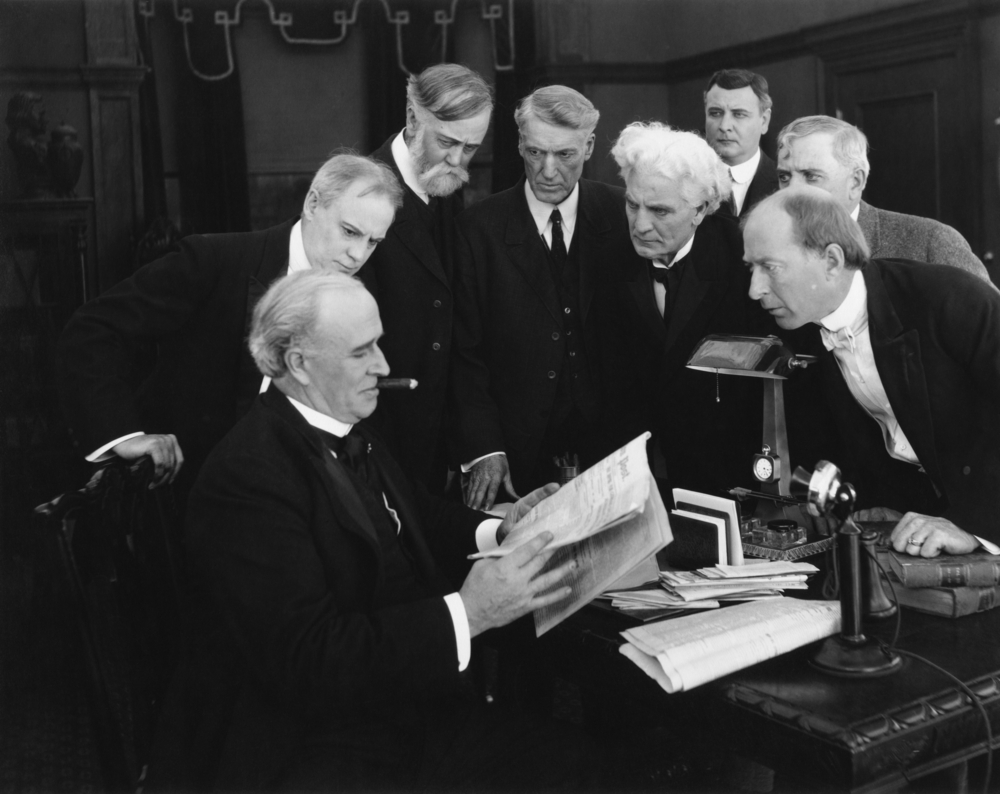California Film and Television Submission Protection Lawyer

California Film and TV Submission Protection Lawyer Sebastian Gibson
Protecting Film and Television Concepts
Something no creative artist wants to hear is that their great concept for a film or television series may not be original. But this should not cause them to panic. Even if a dozen other creative people have had the same general concept for a film or TV series, none of them can express the same concept the same way as any other. And the more the writer expands their concept and puts it to paper, the more unique it becomes in the opinion of California Film and Television Submission Protection Lawyer Sebastian Gibson.
A one page treatment for a film or TV series is also unlikely to convince a jury that a writer’s concept was so unique, it had to have been stolen by the people who then produced a film or series that took place in the same locations, with the same brief descriptions of characters and which was in the same genre as described on the one page treatment.
But when that treatment is expanded to a dozen pages, twenty or fifty and the same exact dialogue of the characters contained in those twenty or fifty pages is spoken on screen, and this type of more lengthy treatment has been copyrighted and submitted by an entertainment attorney for the writer to a studio that then produces a project which not only mirrors the elements but even utilizes some of the same dialogue word for word, the writer has a much greater case for copyright infringement.
But what is the best way to submit concepts and treatments for films and television to producers, networks, studios and streaming platforms?
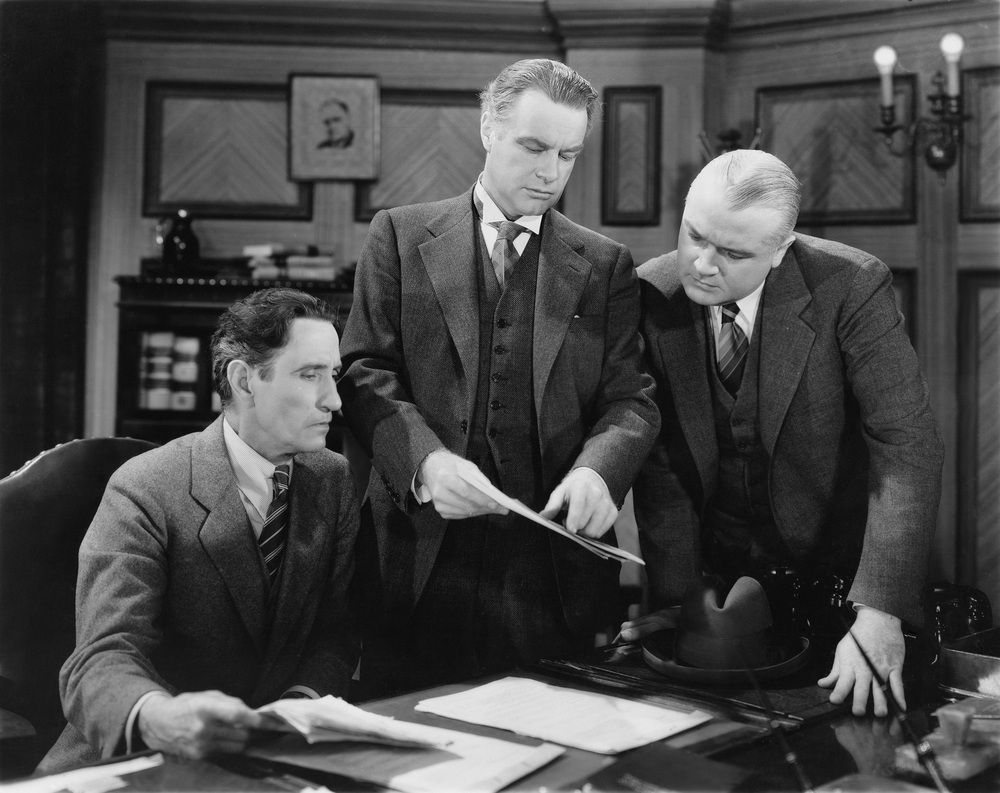
The Concern: How to Safely Submit Concepts and Screenplays for Films and Television Scripts
A major concern voiced to California Film and Television Submission Protection Lawyer Sebastian Gibson by creative artists in the entertainment industry who write books, conceive story ideas, develop concepts for films, television or even the stage, or who have written a screenplay, film treatment, a script for an episode for a television series or who have a unique advertising concept is how to submit their work to a production company, a publisher, a film or television producer, a collaborator, a studio, a network, an advertising agency, a streaming service, an agent or anyone else in the entertainment industry.
Before allowing others to read your book, your script, screenplay, or even listen to your concept, story idea, or a commercial concept much less submit your project to a producer, talent agency or any other entity in the entertainment industry, spending the time and money to obtain copyright, trademark, and submission protection with an experienced California entertainment attorney is worth every penny, euro or pound.
Unfortunately, in today’s litigious world, production companies and others in the entertainment industry who on a daily basis receive scores of submissions of one type or another and are fearful of being accused of theft of a writer’s work or ideas should they later produce or become even tangentially involved with a project with similarities to material submitted to them, are so fearful of liability that today they have shut their doors to submissions from all but those entertainment attorneys and others with whom they already have a past relationship.
The last thing these companies need or want is to have a production halted or an injunction filed to prevent the project from airing or being released theatrically, or for litigation to tie up revenues or damages to be awarded that could seriously hurt the company’s revenues.
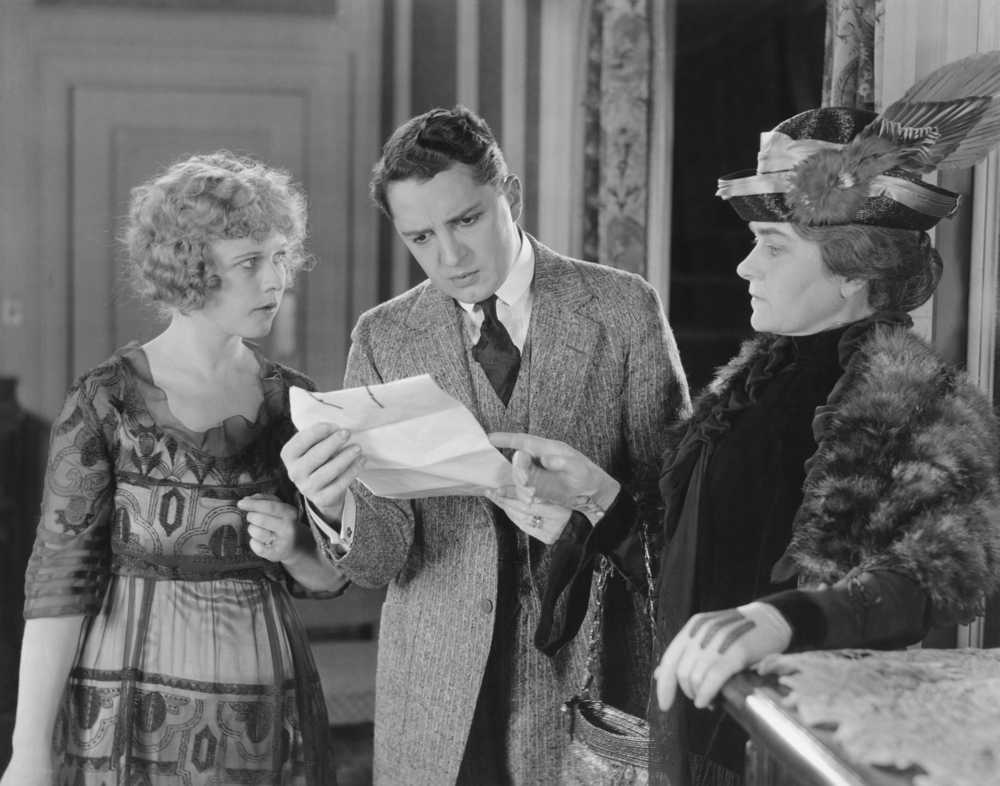
California Film and Television Submission Protection Lawyer Sebastian Gibson
California Film and Television Submission Protection Lawyer Sebastian Gibson has law degrees both from the University of San Diego School of Law and from Cardiff University in Wales where he graduated magna cum laude.
With these dual law degrees in the U.S. and Great Britain, and over 40 years of combined experience both in London and California, Sebastian Gibson is the international entertainment law firm to turn to for music events, festivals and world tours, music, film, television, songwriting, film music licensing, film and TV production agreements, publishing, modeling, athlete representation, and other creative aspects of the entertainment industry in the U.S., the UK and around the world.
California Film and Television Submission Protection Lawyer Sebastian Gibson, the Right Choice
Focused on bringing great film projects to UK film producers who recognize the unique voice of British actors, directors and crews and as a California entertainment powerhouse working with actors, musicians, songwriters, novelists, models and athletes from offices just near enough to Hollywood but far enough from the congestion of LA, California Film and Television Submission Protection Lawyer Sebastian Gibson is the right choice and the law firm to choose for all your entertainment endeavours from California to the UK and throughout the world.
California Film and Television Submission Protection Lawyer Sebastian Gibson has been named one of the 2022 Top Lawyers by the prestigious Palm Springs Life Magazine for the past 12 years in a row and is one of the most acclaimed lawyers in the Coachella Valley of California. He has been called “Brilliant” and “A Legend” and has written for the Los Angeles and San Francisco Daily Journal Newspapers. He is also a published novelist and wrote and recorded the music and lyrics for the musical, Shake in London. He has a top rating of “Superb” by Avvo, their highest rating, which rates attorneys all across the U.S.
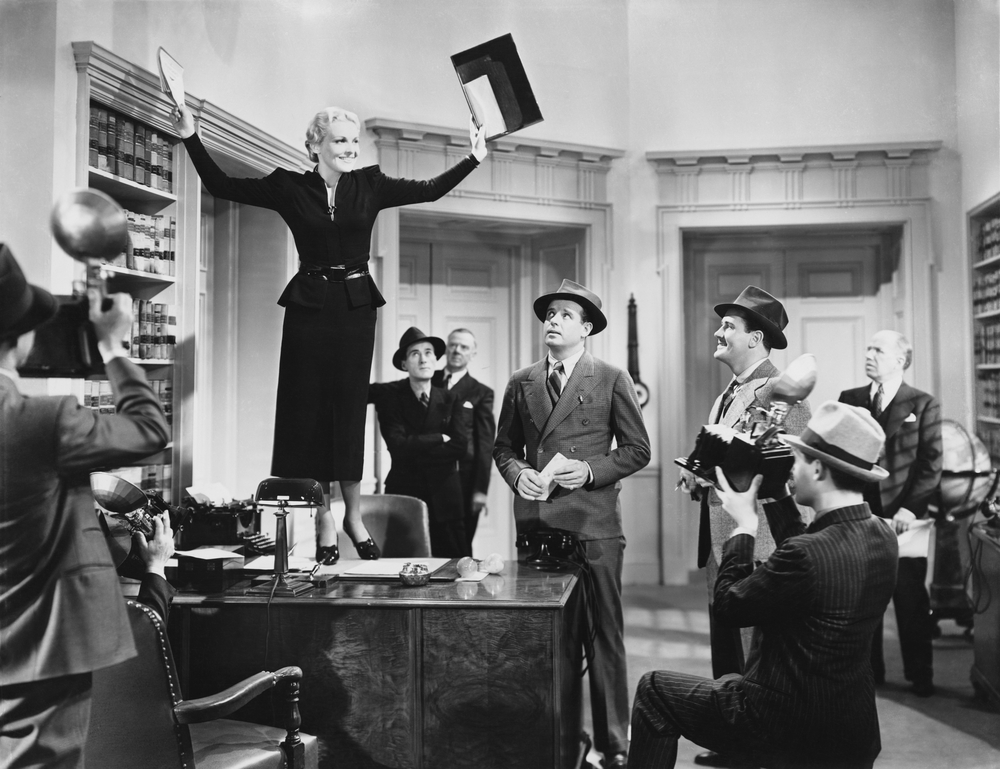
Protecting Ideas, Concepts and An Individual’s Creative Works by Utilizing California Film and Television Submission Protection Lawyer Sebastian Gibson
Most writers already understand, though they may not agree with the law in regard to its holding that ideas are generally not protected by copyright. Indeed, it’s only when the expressions of those ideas are put to paper or on a computer page, when they become a format entitled to copyright protection.
There is a legal avenue, however, for writers to still pursue compensation for concepts and ideas pitched to entertainment entities which has nothing to do with the U.S. Copyright Office and that is through litigation based on a cause of action for an implied contract.
When a story idea or submission is made in confidence to a production company, producer or other entity or individual due what is clearly a confidential relationship between the parties, and, importantly, they have the expectation of being paid if the concept or story is used, an implied contract may be formed and becomes the basis for subsequent litigation when the submitted concept or story is in fact produced and theatrically released or aired on television or a streaming platform.
However, it’s rare to find an attorney willing to take such a matter on contingency. While some attorneys will review and analyze a writer’s fact situation for such litigation, they generally do so on their hourly rate. Should you choose to proceed with litigation which they may or may not choose not to pursue, a writer or producer should keep in mind that such litigation against well-heeled entertainment entities can run into the hundreds of thousands of dollars for litigation of this type.
Entertainment entities have reputations and huge profits to protect from the films and television series they produce. That means they can in effect write blank checks to the attorneys who defend them from copyright infringement and breach of implied contract lawsuits.
Copyright and Trademark Protection of Submissions by California Film and Television Submission Protection Lawyer Sebastian Gibson
While the copyright forms from the U.S. Copyright Office look simple, they become more complicated in choosing which forms apply to your work, and how to answer many of the questions such as those dealing with derivative works.
The complexity of protecting creative works only becomes more complicated when licensing of those works is involved, with renewals of copyrights and when the length of copyright protection of older works is in question.
Trademark application forms are confusing even to all but the attorneys who routinely deal with the U.S. Patent and Trademark Office as we do at the offices of California Copyright and Trademark Lawyer Sebastian Gibson.
At the law firm of California Film and Television Submission Protection Lawyer Sebastian Gibson, we’re experienced in copyright and trademark protection, as well as with other means of protecting a client’s works.
Trademarks can be registered to protect a film title by an experienced trademark attorney, but only for works which are part of a series. Single film titles therefore cannot obtain federal trademark registration benefits. They do not provide constructive notice to others of ownership of a trademark over a producer’s single film title. And by the absence of a trademark, they do not provide a presumption of ownership and exclusive right to use the film title nor the right to obtain statutory damages and costs under the Lanham Act which include attorney fees and treble damages.
One way to get around this is to at least obtain trademarks for other classes of goods and services related to a single film’s title. Single titles can also obtain trademark protection after subsequent releases related to the first film in the series as long as the content changes significantly. To deter others from utilizing a film title for a single work, a producer may also choose to file an intent to use trademark application for a series followed by subsequent extensions of time. Others choose to file trademark applications for their single title works in other countries which will then show up in global title searches or if filed in Canada, in Canadian title searches.
An additional method which can be utilized to protect titles is through registration with the Motion Picture Association of America which has its own Title Registration Bureau.
Major studios use the MPAA Title Registration Bureau to register titles for future films, even if they are never made, and independent distributors can also become part of the MPAA program.
Once an entity becomes a members of the bureau, they must agree not to use a title that is confusingly similar to another title. Any disputes which may arise are resolved through arbitration. The MPAA rules, however, are only binding on its members. However, because the MPAA rules are binding on its members, it can be costly to an independent film producer who joins the MPAA if the title he or she wants to use is already registered with the MPAA.
In order to avoid lawsuits over conflict due to previously used film titles, insurers who underwriting the financing of film productions however require a title search be performed and a title opinion written by an experienced entertainment attorney. The opinion is then provided to the insurer and often to other parties such as a film’s distributor.
Even MPAA members still need to have a title search performed, if not more than one, and a legal opinion prepared to ensure that a film title hasn’t already been used or is about to be used in a forthcoming film.
Because of the importance of obtaining E & O insurance for a film by its producer, title availability search reports are obtained by entertainment lawyers for their clients from various title search companies. To add complexity to the cost of obtaining title searches, there are various types of title searches with the most thorough being a full entertainment search. Title searches today are being performed not just in the U.S. but also in Canada and internationally around the globe.
If all a writer, creator or producer has is a concept, as often is the case with reality TV, the concept cannot be protected with copyright law until they convert their concept to a script, a screenplay, a book, or other writing.
Copyright law does not provide protection to titles, short phrases, slogans, or simple names of products or services for the reason that they have not achieved the requisite level of original creative expression to be protected by copyright.
Once a writer or producer however converts their concept to paper, this gives the creator of that concept something in writing to protect at the U.S. Copyright Office as a literary work.
A writer can also register a pitch with the Writer’s Guild of America.
The more materials which are protected, for instance in the form of larger treatments, scripts, screenplays, bibles (expanded pages professionally written to describe in more details the characters and tone of a TV series concept which accompanies a pitch) and lookbooks (for film submissions) rather than just a five second pitch a creator might make to studio executives, the greater the protection.
If a writer has a script or screenplay, it should not only be copyrighted with the U.S. Copyright Office, it should also be registered with the Writer’s Guild of America.
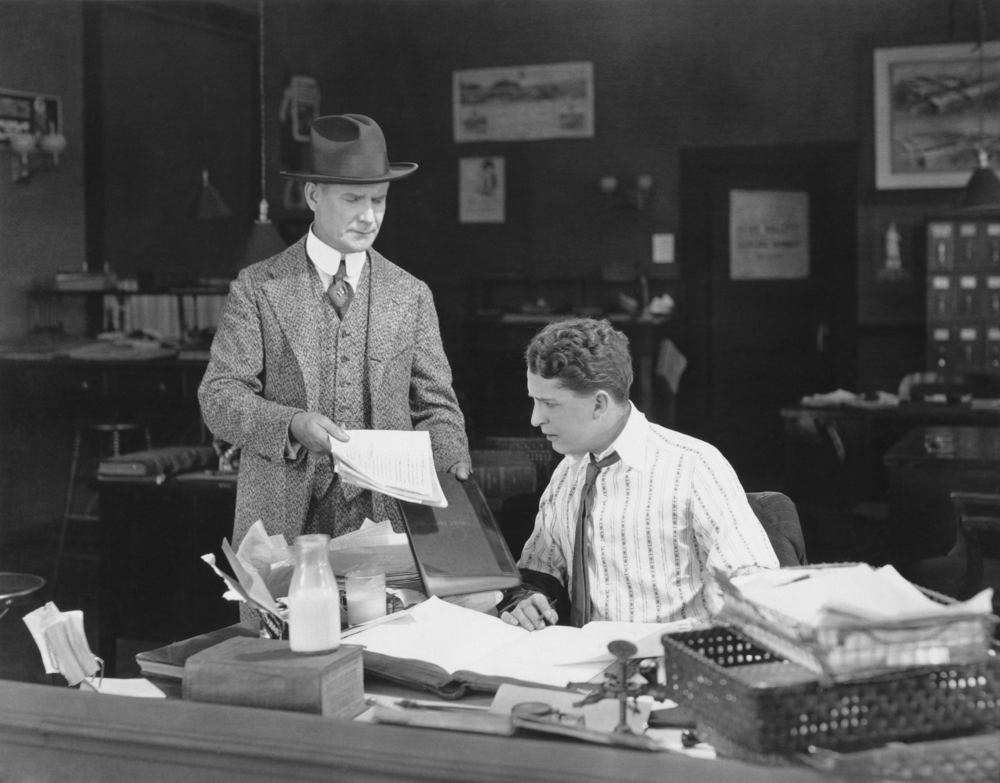
A Final Method of Protection by California Film and Television Submission Protection Lawyer Sebastian Gibson – Contracts With Entertainment Industry Individuals and Entities
Once contracts have been drafted and signed with respect to a creator’s work, the concept they’ve conceived, the script, screenplay or other form of the work they’ve created is protected by evidence of the contract. That doesn’t mean it will prevent everyone from infringing the work. But now they have the evidence to pursue damages for their infringement.
Non-disclosure agreements are probably one of the last alternative means of protection. Many people simply won’t sign them and it’s simply too easy for the person signing such an agreement to simply pass your idea on to someone else. A writer should not count on these agreements or feel protected simply because they do convince someone to sign one.
While a submission release may contain waivers which should be revised if not deleted entirely, a submission release does confirm that the persons or entities to whom a submission is being made had access to a writer’s work, which is a key element of proving the breach of an implied contract
Submission Releases From Studios
Studios and networks today have another way to make it difficult for writers and independent producers to submit projects to studios – submission releases. Even if a studio or network or another producer or streaming service will look at a creator’s project because they have a contact who can get them in the door, or their brother’s niece or second cousin works at a law firm recognized by the studio as being an experienced entertainment law firm, the studio or other entity may still require a submission release before they will accept the unsolicited material.
This policy by production entities, networks and studios who refuse to accept unsolicited material from unknown people, even unknown agents or entertainment attorneys unless they can be vetted, substantiated and even investigated on the internet, is the first wall a writer or independent producer must hurdle. Should they successfully make that hurdle, the next one they must pass is to sign a submission release prior to submission of any materials. But not a simple release, something much more onerous. Some submission releases can be a hard pill for a creative artist to swallow.
From the viewpoint though of a studio who may have just spent $200 million on a film production only to see it tied up in a copyright infringement suit however, is an even more frustrating situation.
Studios and networks like to require submission releases which essentially provide that the producer won’t sue the studio or network for infringement. If the creator of the submission concept is a person who never reads things they sign, this is not for them. Creative artists and writers need to understanding the significance of the terms a submission release may contain.
Submission releases will generally waive any claim of the existence of a fiduciary or confidential relationship between the owner of what’s being submitted and the persons or entities to whom the submission is being sent. It may also waive any claim that there have been any implied promises made by the persons or entities receiving the submission. These waivers alone should give a person pause for thought.
With waivers like these, the question becomes whether a person would ever succeed in pursuing a copyright infringement case if their concept was ever stolen by any of those persons or entities. And that’s what a court would have to consider.
Submission releases may also release the persons or entities from suit for any unprotected ideas. Since an idea alone cannot be protected, this is another reason why a writer needs to expand their concept as much as possible, put it to paper, and copyright it prior to making any submissions.
Submission releases may seek to relieve the persons and entities receiving a submission from any obligation to pay for any concepts developed on their own. While this is understandable, it is easy to see how an entity, if it is unscrupulous, would be able to manufacture evidence to claim it developed a similar concept for a film or TV series prior to the submission.
However, a submission release should also state that the persons or entities to whom the submission is being made does have an obligation to pay for the use of any protected material being submitted. If it doesn’t say this, that term needs to be added to the release.
It’s also advisable to replace any references to arbitration with the other form of dispute resolution, mediation. Any reductions of the statutory amount of time a person has to request mediation or to file litigation if mediation does not resolve a dispute should also be deleted. A change to terms contained in a submission release such as this is however difficult to obtain from an entertainment entity.
Despite all of these issues with submission waivers, a person must have some degree of trust in this process. At the same time, there are steps a person can take to protect themselves from a situation where the entities a person did trust, turns out to be untrustworthy which is what this article has been all about.
Submission Protection by Utilizing California Film and Television Submission Protection Lawyer Sebastian Gibson
Submission protection also comes with having your project submitted by California Film and Television Submission Protection Lawyer Sebastian Gibson. Indeed this is why networks, studios, even book publishers require that submissions be made only by reputable law firms or agents in their respective fields, be it a talent agent for films and television, an entertainment lawyer or a literary agent for books.
When a project has been submitted by a reputable and experienced entertainment attorney, a studio, producer, network or streaming company can feel confident that by virtue of the fact that an entertainment lawyer has submitted the project, a precise record has been made of the materials submitted, when the submission was made, and to whom it was made. Whether such records are in fact made by all entertainment attorneys is unproven, though that should be the case.
Once a reputable entertainment law firm known to the entertainment industry has made a submission of a project, the studio or network, talent agent or producer to whom the submission has been made may be willing to review the project or the work and any materials sent with the submission.
However, before A-list actors or directors may review the materials submitted, it’s more likely to require involvement of a talent agency who may first require a packaging fee to be negotiated with a producer before they will pass on the project to their signed talent.
What Entertainment Attorneys Charge To Make Film and TV Submissions
There are a few things individuals who have submissions they want an entertainment attorney to submit, need to know.
Entertainment attorneys have reputations they need to protect. An entertainment attorney who submit anyone’s submission, no matter how bad it is written or looks, is risking their reputation. At some point, entertainment entities will refuse to receive any more from the attorney, if they ever were willing to receive them in the first place.
Most entertainment attorneys willing to make submissions for clients, need to read the materials being submitted and make recommendations before being willing to submit a client’s work. The reason is, they don’t want to look bad, pure and simple.
Entertainment individuals and entities will often not accept submissions from entertainment attorneys unless they have a past relationship either with the attorney or with the attorney’s client, or even both.
Entertainment attorneys are also generally not willing to make follow-up calls to the persons and entities to whom a submission has been made or to use their contacts to help the chances of a client making a submission to be successful. Again, it goes to the attorney’s reputation which isn’t helped by being a pest.
Any additional services performed by the attorney, such as in drafting, reviewing or negotiating contracts are performed at the attorney’s hourly rate on top of any percentage and/or the hourly rate for the attorney’s time and their expenses the client pays the attorney for making the submission.
The amount an entertainment attorney charges to make a submission is negotiable. However, if the attorney is charging a client a contingency fee for making a submission, what is fairly common is for the attorney to charge the client either 5% of any monies the client receives as a result of their project being made plus their expenses.
Some entertainment lawyers prefer to charge their clients their hourly rate plus expenses, but they will likely want to charge their hourly rate to review the submission and for any additional time spent advising the client.
The best entertainment attorneys will charge a 5% contingency fee plus their hourly rate, but if they do so, some may be willing to reduce one or the other if the attorney himself feels (not the client, who is almost always more optimistic) there is an excellent chance the submission will result in the client’s film or TV project being made.
Entertainment attorney hourly rates are generally $500/hour or more and they will charge a client for their time in assisting a client to package their submission so it is of the professional quality an entertainment entity expects. Some entertainment lawyer hourly rates are much higher ($700/hour is not unusual for a top entertainment attorney to charge).
Unfortunately, at the present time, the California Film and Television Submission Protection Lawyer Sebastian Gibson only assists in the submission of creative works by clients with whom we have a prior established relationship and who have a track record and prior working relationship with the entities or individuals being submitted our clients’ work.

California Entertainment Lawyer Sebastian Gibson
From Malibu to San Diego where California Entertainment Attorney and California Film and Television Submission Protection Lawyer Sebastian Gibson graduated from the University of San Diego School of Law, to his current offices in the Palm Springs area and Newport Beach to London where he has practiced law extensively, California Entertainment Lawyer Sebastian Gibson has become the right choice for all entertainment film and television productions, projects in development and film and TV agreements for productions in the U.S., the UK and around the world.
With offices in the Palm Springs area where Live Nation will be opening a new arena in 2021 to Palm Desert to the eastern portion of the Coachella Valley where AEG subsidiary Goldenvoice produces the Coachella Valley Music and Arts Festival and the Stagecoach Music Festival, Sebastian Gibson is the Coachella Valley’s entertainment attorney.
California Film and Television Submission Protection Lawyer Sebastian Gibson
The law firm of California Film and Television Submission Protection Lawyer Sebastian Gibson not only has Southern California covered, from Palm Springs to Orange County, but we have the world covered as well from London where some of the finest films and television series continue to be produced.
For many years one of the world’s most iconic entertainment lawyers for modeling and publishing, representing models and writers throughout the world, California Entertainment Lawyer Sebastian Gibson is on track to becoming one of the world’s leading law firms for music, film, television, theater and worldwide entertainment events in addition to its expertise in the fields of modeling and publishing.

